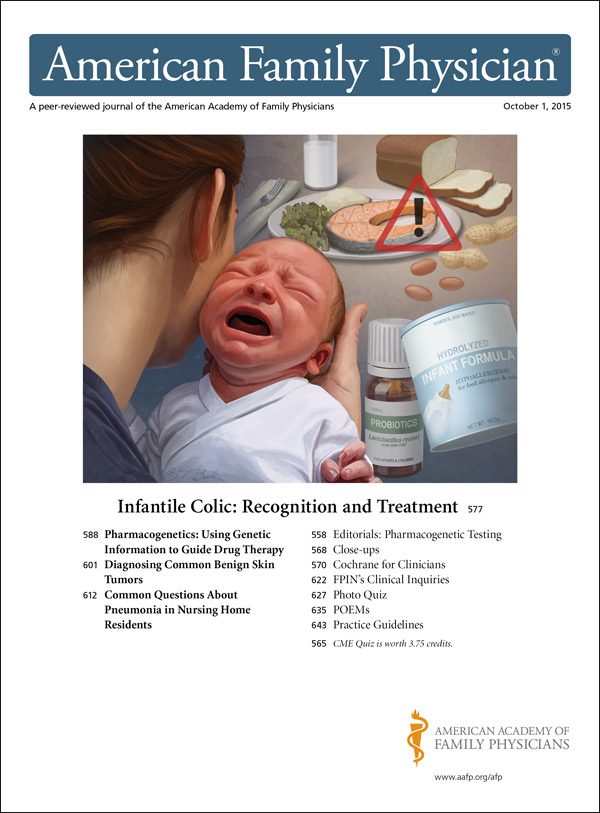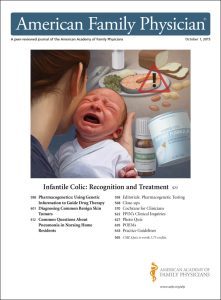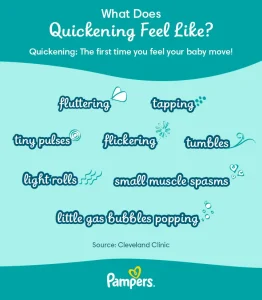baby colic treatments natural tips include giving the baby a warm bath, using over-the-counter gas drops, and gentle tummy massages to relieve symptoms. Babies with colic often experience long periods of inconsolable crying, which can be extremely distressing for both the baby and the parents.
While the exact cause of colic is unknown, it is believed to be related to a combination of factors including digestive issues, gas, and an immature nervous system. To help manage the symptoms of colic, there are several treatment options available.
This article will explore the different approaches parents can take to soothe their baby’s discomfort and provide relief. By trying different strategies and methods, parents can find the best colic treatment that works for their baby and helps them navigate this challenging period.

What Is Baby Colic?
Baby colic is a common condition that affects many infants, causing them to cry excessively and inconsolably. It typically starts around the second or third week of life and can last up to the fourth or fifth month. While the exact cause of colic is still unknown, it is believed to be related to gastrointestinal discomfort and an immature digestive system.
Symptoms Of Colic, baby colic treatments natural tips
Babies with colic show certain signs and symptoms that can be distressing to both them and their parents. Recognizing these symptoms can help in confirming if your baby is indeed suffering from colic:
- Intense, high-pitched crying that often occurs in the late afternoon or evening.
- Episodes of crying lasting for at least three hours a day, three days a week, for more than three weeks.
- Difficulties in consoling the baby, despite attempts to feed, change, or soothe them.
- Body tensing, clenched fists, and pulled-up legs.
Causes Of Colic
The exact cause of colic remains a mystery, but several factors are thought to contribute to its occurrence:
- Immature digestive system: In the early months, a baby’s digestive system is still developing, making them more susceptible to discomfort and gas.
- Sensitivity to stimuli: Babies with colic may have heightened sensitivity to certain smells, sounds, or lights, which can trigger their excessive crying.
- Maternal diet: Some studies suggest that certain foods consumed by breastfeeding mothers, such as caffeine and spicy foods, can cause colic in their infants.
- Family history: Babies with a family history of colic or gastrointestinal issues may be more prone to developing colic themselves.
Understanding the symptoms and potential causes of baby colic is crucial in finding effective treatments to alleviate your baby’s discomfort and restore peace at home.
Natural Remedies For Baby Colic
If your baby is suffering from colic, you may be exploring natural remedies to help ease their discomfort. Natural treatments for baby colic can include dietary adjustments and herbal remedies that are gentle on your little one’s delicate system. These remedies aim to provide relief from the symptoms of colic, such as excessive crying, fussiness, and discomfort. Below, we’ll explore some natural options to consider for soothing your baby’s colic.
Dietary Adjustments
Breastfeeding moms may consider adjusting their diet by eliminating potential allergens such as dairy, caffeine, citrus fruits, and gas-inducing foods. For formula-fed babies, switching to a hypoallergenic formula or one with reduced gas properties can help alleviate colic symptoms. It’s important to consult a healthcare professional before making any dietary changes.
Herbal Remedies
Several herbal remedies have been used for centuries to soothe colicky babies. Chamomile tea, when administered in small doses, can have a calming effect on infants. Additionally, gripe water, which contains a blend of herbs such as fennel and ginger, is known for its colic-relieving properties. Always ensure the safety and appropriate dosage of herbal remedies with a pediatrician.
Tips For Soothing A Colicky Baby
Dealing with a colicky baby can be incredibly challenging for parents. When your little one is constantly crying and seems inconsolable, it can be distressing to know how to help. Here are some effective tips for soothing a colicky baby that can provide much-needed relief for both you and your little one.
Swaddling Techniques
Swaddling is a tried and tested method for soothing colicky babies. Wrapping your baby snugly in a blanket can provide them with a sense of security and comfort. A gentle, but firm, swaddle can help minimize their symptoms of colic and can help them feel safe and settled.
White Noise And Gentle Motion
White noise and gentle motion can work wonders for calming a colicky baby. The rhythmic sounds of a white noise machine or a recording of nature can create a soothing environment for your baby. Coupled with gentle swaying or rocking, this can be incredibly calming and reassuring for your little one.
Massage And Infant Chiropractic Care
When it comes to soothing a baby suffering from colic, gentle massage and chiropractic care can be effective treatments to provide relief and comfort. Both techniques offer safe and natural approaches to help alleviate the symptoms of colic, providing parents with alternative options for managing their baby’s discomfort.
Gentle Massage Techniques
Gentle massage techniques can provide relief for a colicky baby by helping to ease their digestive discomfort and reduce their overall agitation. Massaging the baby’s abdomen in a clockwise motion can help to alleviate gas and alleviate the symptoms associated with colic. Additionally, caregivers can use gentle, rhythmic strokes on the baby’s back and legs to promote relaxation and comfort.
Chiropractic Techniques
Chiropractic care for infants is a non-invasive and gentle approach that focuses on the spine and nervous system to address colic symptoms. Chiropractic techniques for colicky babies often involve gentle adjustments to address any misalignments in the spine or tension in the muscles. These adjustments can help to restore balance and alleviate any discomfort the baby may be experiencing, leading to improved well-being.
Probiotics And Colic Relief
Baby colic can be distressing for both infants and parents, but the use of probiotics has shown promise in providing relief. Probiotics, the good bacteria that help regulate the digestive system, can play a crucial role in soothing colicky babies.
Benefits Of Probiotics
- Alleviates digestive discomfort
- Supports a healthy gut microbiome
- Reduces gas and bloating
Choosing The Right Probiotic
When selecting a probiotic for your baby, consider factors such as the strain specificity and dosage accuracy. It’s important to opt for products specifically formulated for infants to ensure safety and efficacy.
Managing Colic-related Stress For Parents
Parents can benefit from family and friend support.
Self-care Strategies
- Take breaks when needed.
- Practice deep breathing to calm nerves.
When To Seek Professional Help
Dealing with a colicky baby can be incredibly challenging for parents. While some cases can be managed at home with various remedies, there are situations when seeking professional help becomes necessary. Here are two scenarios in which it is highly recommended to consult experts: consulting a pediatrician and seeing a lactation consultant.
Consulting A Pediatrician
If your baby’s colic symptoms persist for more than three months or if they are causing significant distress to both you and the baby, it is important to reach out to a pediatrician. They are highly trained medical professionals who specialize in infant health. Not only can they diagnose colic accurately, but they can also rule out any underlying medical conditions that may be contributing to your baby’s discomfort.
Pediatricians can provide guidance on suitable treatments and give advice tailored to your baby’s specific needs. They may recommend trying different strategies or prescribe medication if necessary. Remember, a pediatrician’s expert opinion and guidance can offer reassurance to parents who may feel overwhelmed.
Seeing A Lactation Consultant
If you are breastfeeding your baby and suspect that the colic symptoms may be related to your milk supply or feeding technique, it may be beneficial to see a lactation consultant. These specialists are trained in breastfeeding techniques and can assess both you and your baby to identify any potential issues.
A lactation consultant can assist in ensuring proper latching, positioning, and milk transfer, in case these factors are causing or aggravating colic symptoms. They will work closely with you, providing hands-on support and guidance to improve your breastfeeding experience. With their help, you can gain confidence in your feeding routine, and they can suggest any necessary adjustments to minimize colic episodes.

How Can I Help My Baby With Colic?
To help your baby with colic, try holding them in an upright position after feeding. You can also try burping them gently. Using a soothing motion, like rocking or swaying, may help calm them. Consult with your pediatrician for additional guidance.
How Long Does Colic Last For A Baby?
Colic in babies typically lasts up to 3 months.
What Is The Best Medicine For Colic Babies?
The best medicine for colic babies is usually prescribed by a doctor and can include simethicone drops or a medication called dicyclomine. However, always consult with a healthcare professional before giving any medication to your baby.
How I Cured My Baby’s Colic?
I eased my baby’s colic by using gentle belly massages, swaddling, and white noise. Modifying my diet and trying probiotics also helped. It’s important to consult a pediatrician before trying any remedy.
Conclusion
There are several effective treatments available for baby colic, ranging from simple soothing techniques to specialized formulas. Understanding the symptoms and seeking professional advice can greatly help in determining the best course of action for your infant. Remember, each baby is unique, so it may take time to find the most suitable treatment.
By being patient and persistent, you can provide your baby with the relief they need and create a more comfortable environment for everyone involved.
“baby colic treatments natural tips, baby colic treatments natural tips”





